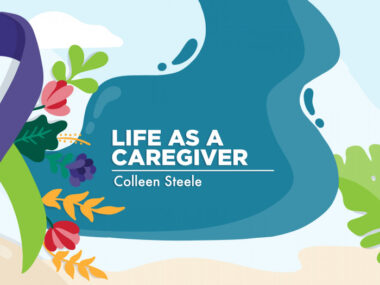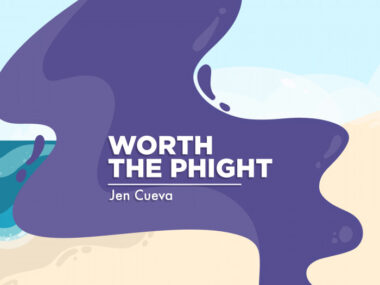Organizing health information is crucial to rare disease management
Digital tools and trackers can help us prepare for an emergency
Written by |

If I asked you to list every medication you or a loved one takes — along with the doses — could you do it? You might be surprised how many in the pulmonary hypertension (PH) community can’t recall those details when it matters most.
This year, I learned just how crucial it is to keep an updated medication list on hand during a hospital stay — a lesson that may have saved me some serious trouble.
Here’s what happened. While reviewing my medications, my hospital doctor rattled off names from my records. But as I listened, I caught several mistakes — drugs I’d stopped taking or had never taken at all! Imagine if I hadn’t been alert enough to catch those errors. A simple mix-up like that could’ve caused significant problems for me, given that I have low blood pressure and am on two PH treatments.
Simple mistakes can be dangerous
Since then, I’ve made it a habit to double-check everything with my care team. I carry a detailed spreadsheet with all my current prescriptions, recent changes, and doses. My doctor was so impressed he asked if he could make a copy, and he added it to my chart right then and there. It might be my nursing background, but I’ve seen firsthand how critical it is to take ownership of your health.
But what happens when someone isn’t able to self-advocate? What if they’re confused or, worse, unresponsive? Without an updated medication list or a loved one stepping in, the risks can be severe.
This got me thinking: Adults with rare diseases, along with parents of children with such conditions, face these challenges daily. Emergencies strike without warning, and caregivers need instant access to critical information about treatments, feeding tubes, or medical devices. The difference between being prepared and scrambling for details could be life-changing.
Learning about a new tool
The need for better access to health information came up when I connected with rare disease caregiver Ryan Sheedy a few months ago on LinkedIn. As the father of a son with Costello syndrome, Sheedy understands the daily challenges of caregiving. We set up a call so he could share about a passion project and learn more about my advocacy work.
Along with Bret Koncak, another rare disease parent, Sheedy cofounded Mejo, a free tool designed to revolutionize caregiving. Mejo is a mobile app that can make organizing and sharing vital medical information easier, giving caregivers more time to focus on what matters most: their loved ones.
In an interview over the phone, Sheedy shared with me how this platform came to fruition and how he and many others in the rare disease community have used it. I thought the PH community might also find it helpful.
Imagine the chaos of a hospital visit where the medical team doesn’t have all the details about care provided at home. That’s where Mejo can step in, Sheedy said. It bridges the gap, providing caregivers a platform to record medications, treatments, and social contexts. In emergencies, you can hand over your phone to medical staff, giving them instant access to everything they need. Meanwhile, you can focus on comforting your child or loved one.
But Mejo isn’t just for emergencies, Sheedy explained. It can be a lifesaver for day-to-day caregiving, too.
Need a break? Sheedy shared that babysitters and family members can use the app to ensure seamless care while parents and caregivers recharge. The tool also includes disease-specific playbooks, such as one for Rett syndrome, and the company plans to expand these offerings to rare diseases that affect adults, too. That’s when I hope to begin using this tool to help manage my PH care. I’ve already shown it to my husband and caregiver, Manny, and he was impressed.
According to its website, Mejo is designed to empower caregivers and help build stronger partnerships with medical teams. It allows users to keep accurate, up-to-date information — including pictures and videos — at their fingertips.
Rare disease management can feel overwhelming, but tools such as Mejo make a huge difference. Staying organized can save time, reduce stress, and help prevent medication errors — which could be lifesaving.
In addition, Mejo can contribute to broader medical research by collecting anonymized personal health information. That could lead to improved treatment options or even cures. Technology like this doesn’t just support individual families; it’s building a brighter future for the rare disease community.
Whether you use Mejo, a spreadsheet, or another organization tool, one thing is clear: Being prepared makes a huge difference in disease management. Tracking medications and treatments may seem simple, but it can have a profound impact on the safety and quality of one’s care.
During our conversation, Sheedy shared his favorite quote from the movie “Patch Adams“: “You treat a disease, you win, you lose. You treat a person, I guarantee you, you’ll win, no matter what the outcome.” What a wonderful reminder.
Note: Pulmonary Hypertension News is strictly a news and information website about the disease. It does not provide medical advice, diagnosis, or treatment. This content is not intended to be a substitute for professional medical advice, diagnosis, or treatment. Always seek the advice of your physician or other qualified health provider with any questions you may have regarding a medical condition. Never disregard professional medical advice or delay in seeking it because of something you have read on this website. The opinions expressed in this column are not those of Pulmonary Hypertension News or its parent company, Bionews, and are intended to spark discussion about issues pertaining to pulmonary hypertension.




Leave a comment
Fill in the required fields to post. Your email address will not be published.